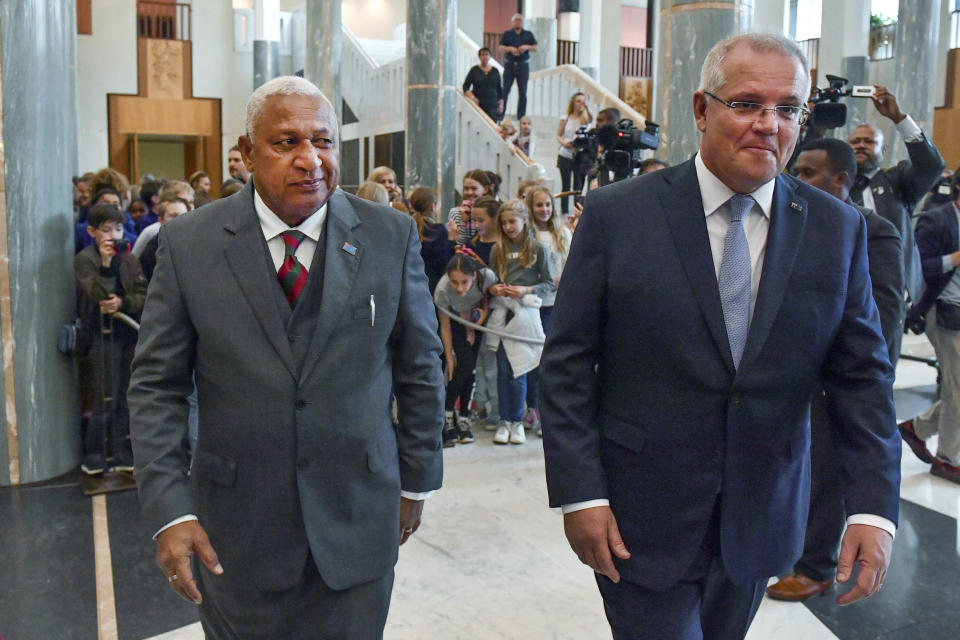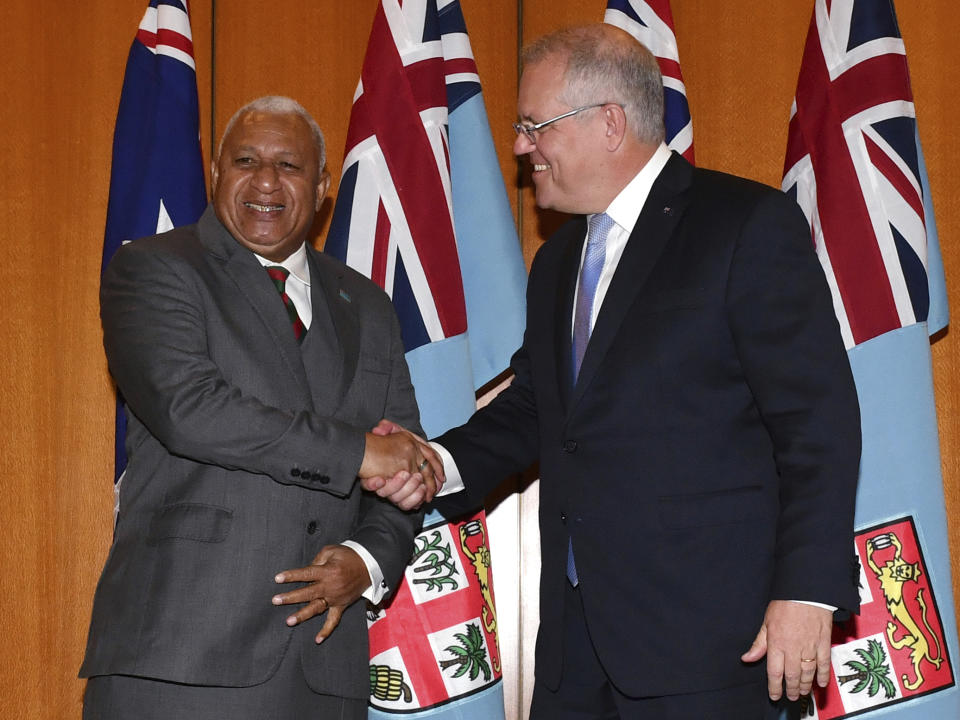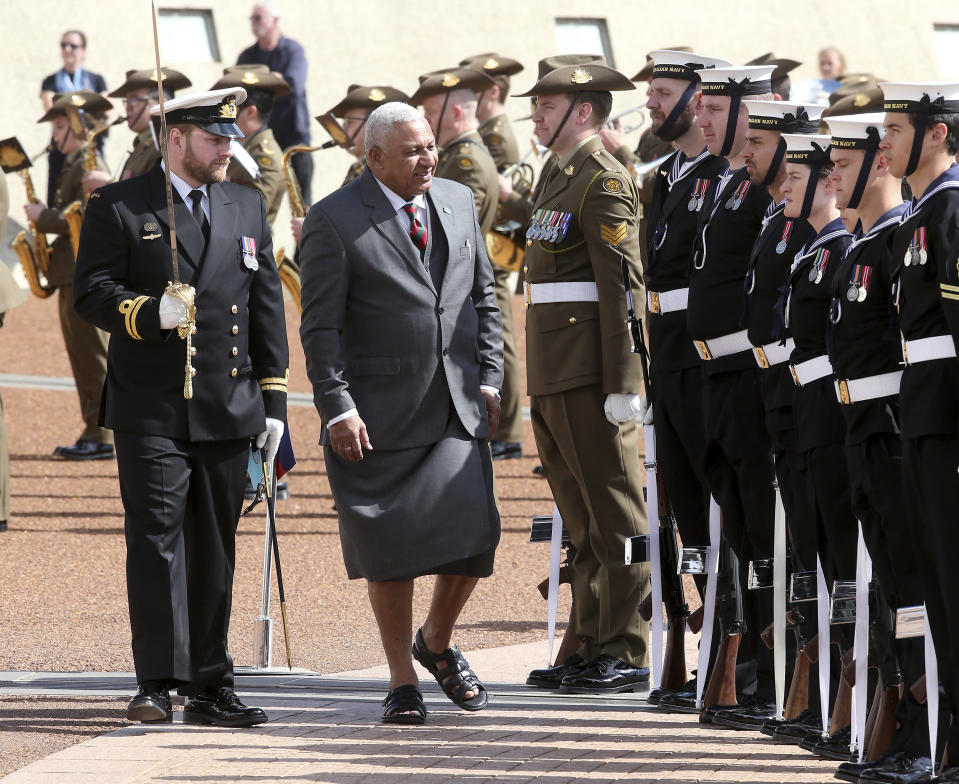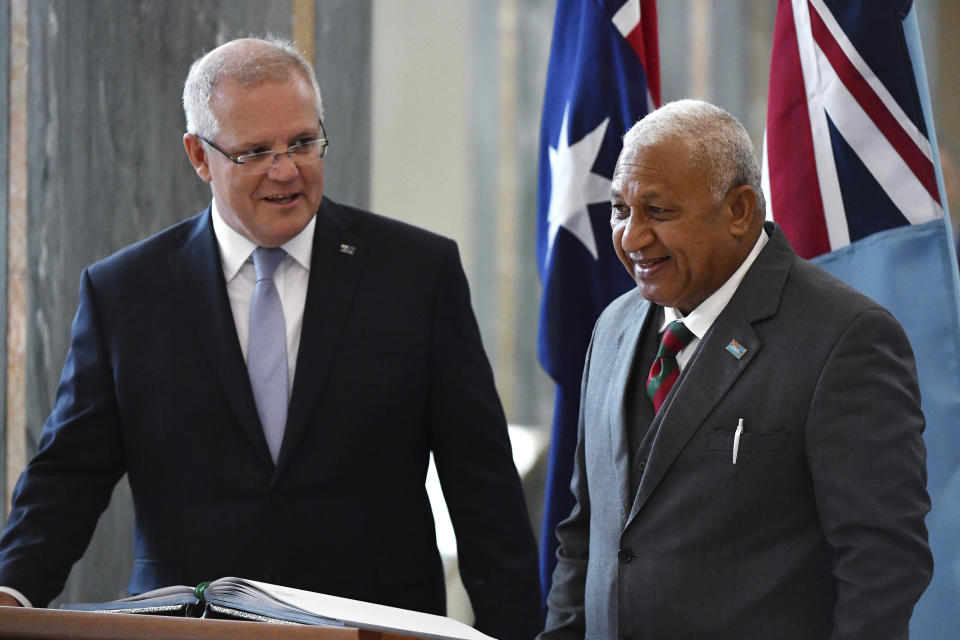Fijian leader urges Australia to do more on climate change
CANBERRA, Australia (AP) — Fiji's prime minister used a state visit on Monday to urge Australia to take more ambitious actions to slash greenhouse gas emissions, a month after differences on climate change policy created anger and frustration at a forum of Pacific island leaders.
Voreqe Bainimarama, who was Fijian Military Forces commander when he seized power in a 2006 coup, said in a speech at the Australian Defense College that he hoped Fiji and Australia could "find more common ground" on climate change.
"The steady deterioration in the state of the only planet we have means that we all need to be far more ambitious in reducing the greenhouse gas emissions that are causing global warming," Bainimarama said.
He said both countries are already suffering the effects of climate change. Dozens of wildfires are razing Australia's drought-parched east coast in an extraordinarily early and destructive start to the annual fire danger season. In Fiji, 44 people died and thousands of homes were destroyed in 2016 when Cyclone Winston became the strongest storm to ever make landfall in the southern hemisphere.
Bainimarama's visit comes as Australia's center-left opposition mulls abandoning its policy, rejected at May elections, of reducing Australia's greenhouse gas emissions by 45% below 2005 levels by 2030.
Prime Minister Scott Morrison's conservative coalition won a surprise third term with a commitment to reduce emissions by a more modest 26% to 28% in the same time frame.
Bainimarama met Morrison at Parliament House on Monday for the first time since the Fijian rebuked Morrison for his behavior at the Pacific Islands Forum at Tuvalu last month.
Bainimarama told The Guardian Australia that Morrison's approach had been "very insulting and condescending" at the forum, where he toned down the language of the leaders' communique calling for action on climate change.
Bainimarama, a vocal advocate for global action on climate change, told the newspaper that Morrison's attitude would drive South Pacific leaders to China, which is competing against Australia for influence in the region.
Bainimarama said after an initial meeting with Morrison on Monday that they had discussed "pressing issues," but did not describe them.
He said the two governments need to do more to achieve a "vuvale" partnership, a Fijian word for family.
"The vuvale connection demands a level of understanding unprecedented in the relations between our governments, but which has been long evident in the general affinity shared by the Fijian and the Australian people," Bainimarama told reporters.
Leaders at the Tuvalu forum of 18 island nations, some of which risk being covered by rising oceans, wanted to call for a ban on new coal mines in the communique.
But Australia, the largest nation in the forum and the world's largest exporter of coal, resisted. The final statement called on major economies to "rapidly implement their commitment to phase out inefficient fossil fuel subsidies."
Morrison said on Monday the relationship between the two countries would always endure.
"Whatever other complexities there are in the world today, one certainty is the relationship that exists between the people of Australia and the people of Fiji," Morrison said.





